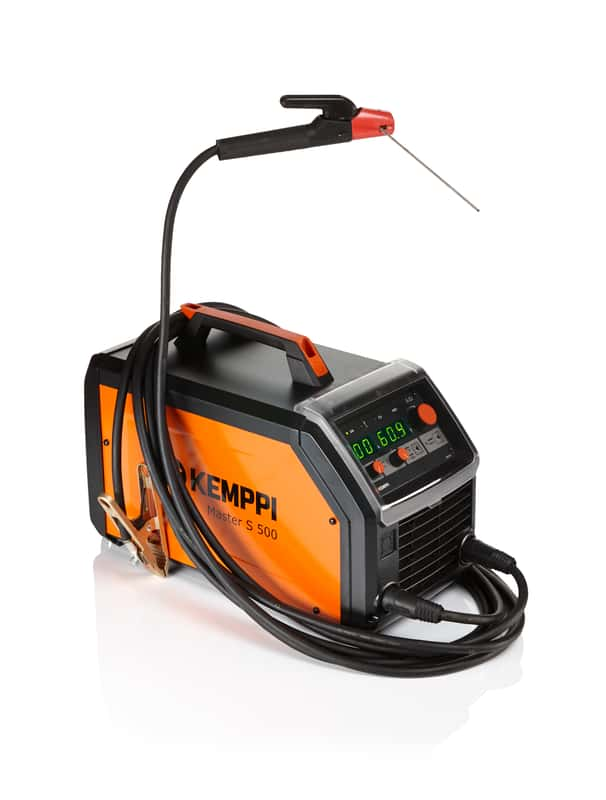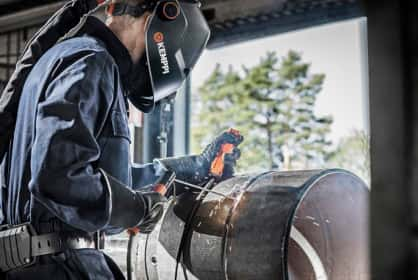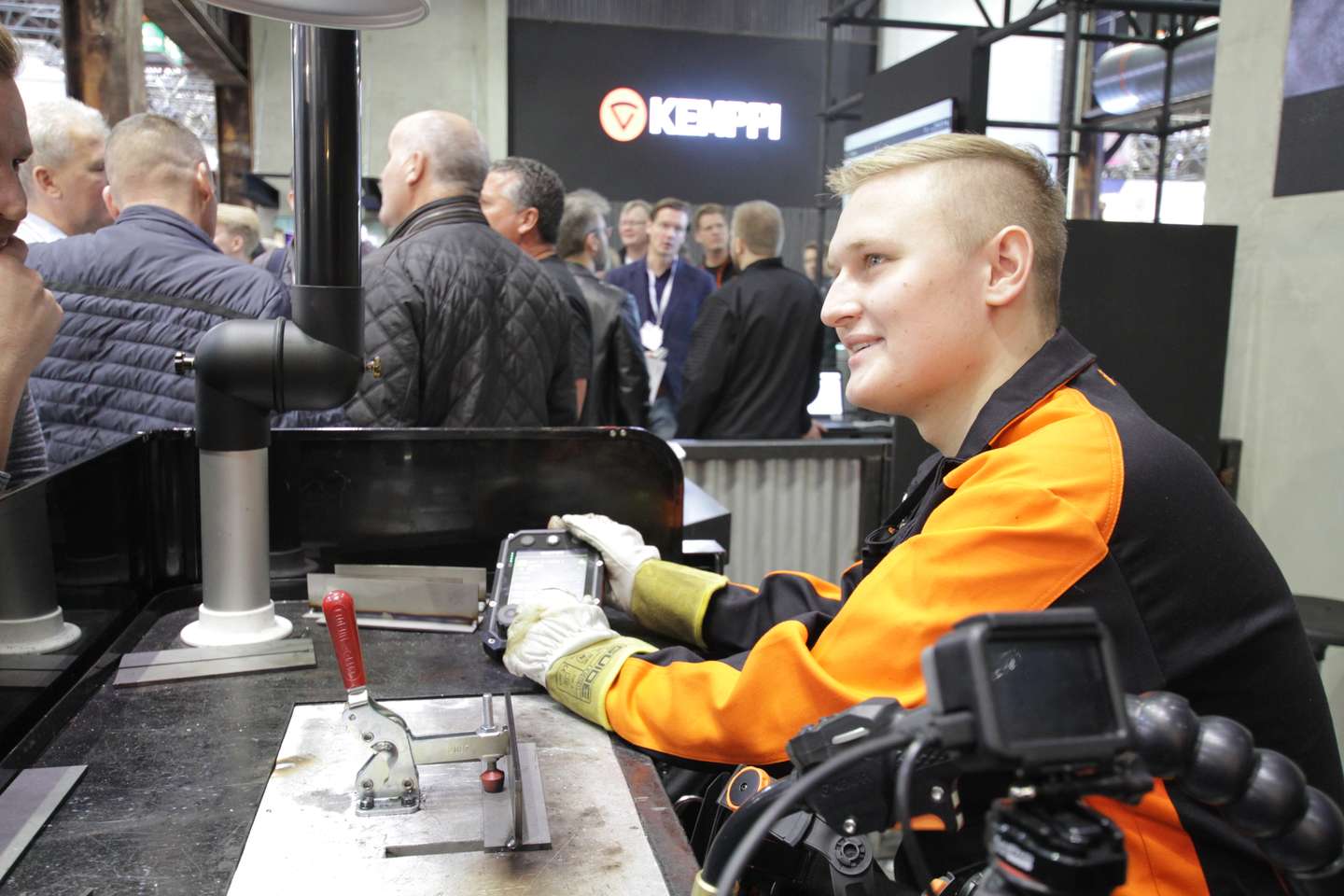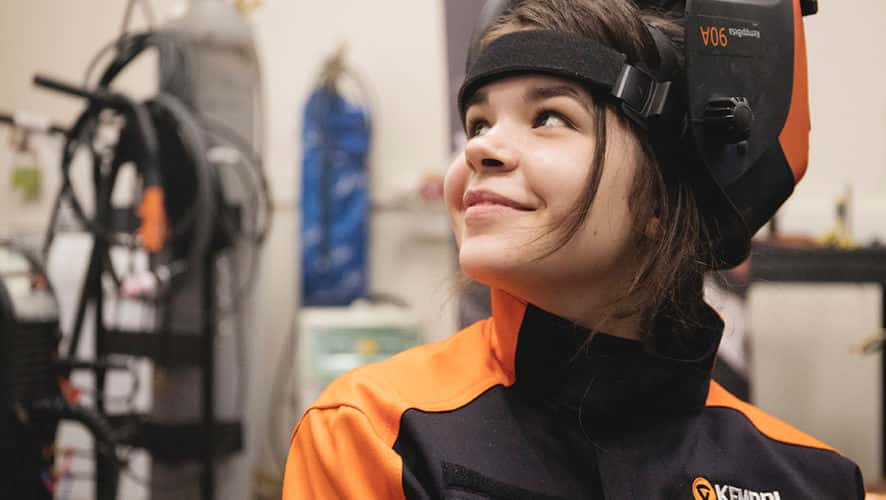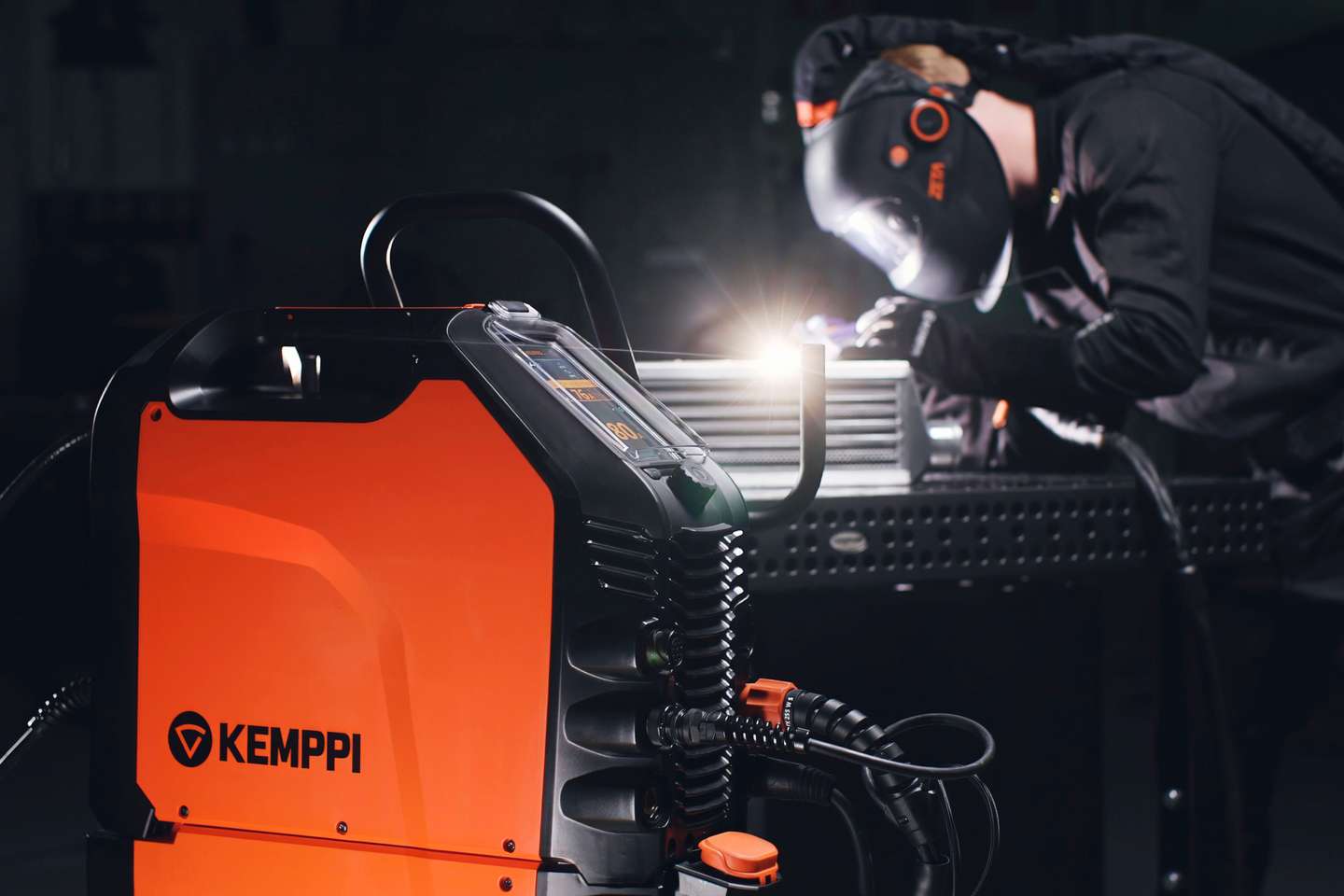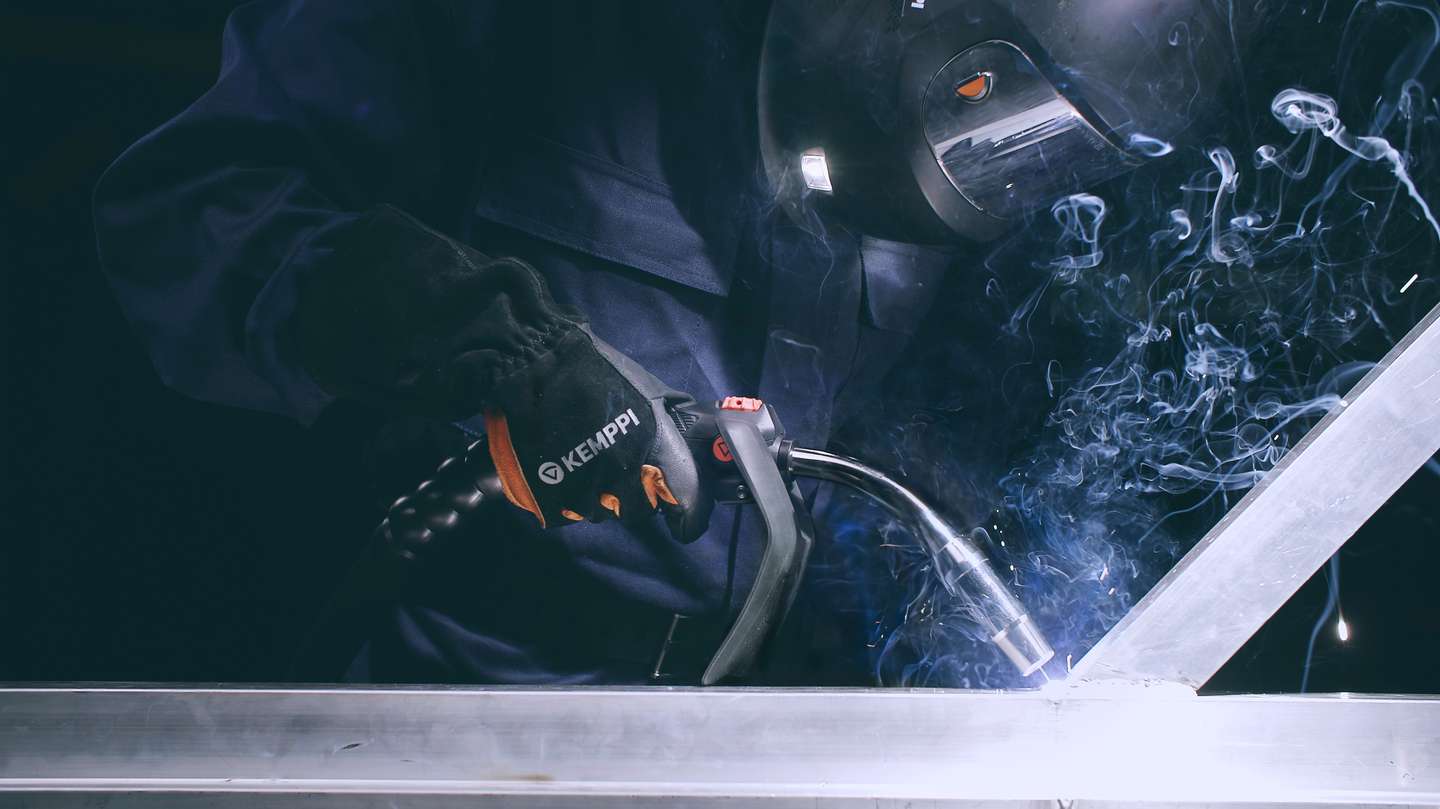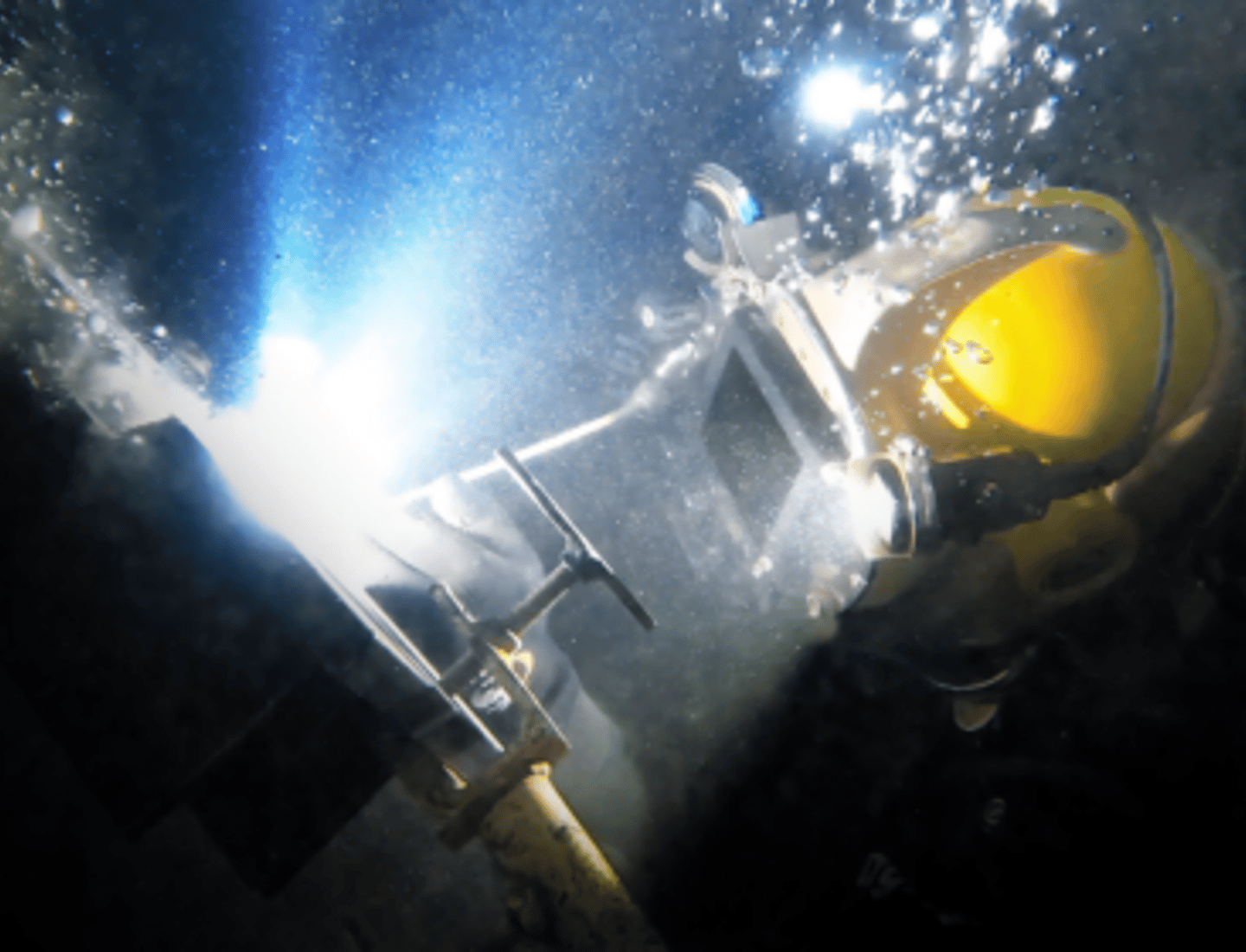
Saldatura manuale
Underwater welding shows what a welder is made of
16 febbraio 2023
Welding underwater sounds challenging, and it is. Combining two expert skills, welding, and diving, requires plenty of practice and yet is not suitable for everyone. This type of work challenges a real expert and encourages them to show their skills.
Anu Rousku

Anu Rousku
Anu Rousku
Marketing Communications Specialist at Kemppi Oy until September 2020. Experienced professional in content marketing with a demonstrated history of working in the industrial B2B sector. Playing with words, persuading the reader, with the spirit of getting things done – it is all seen in the result.
